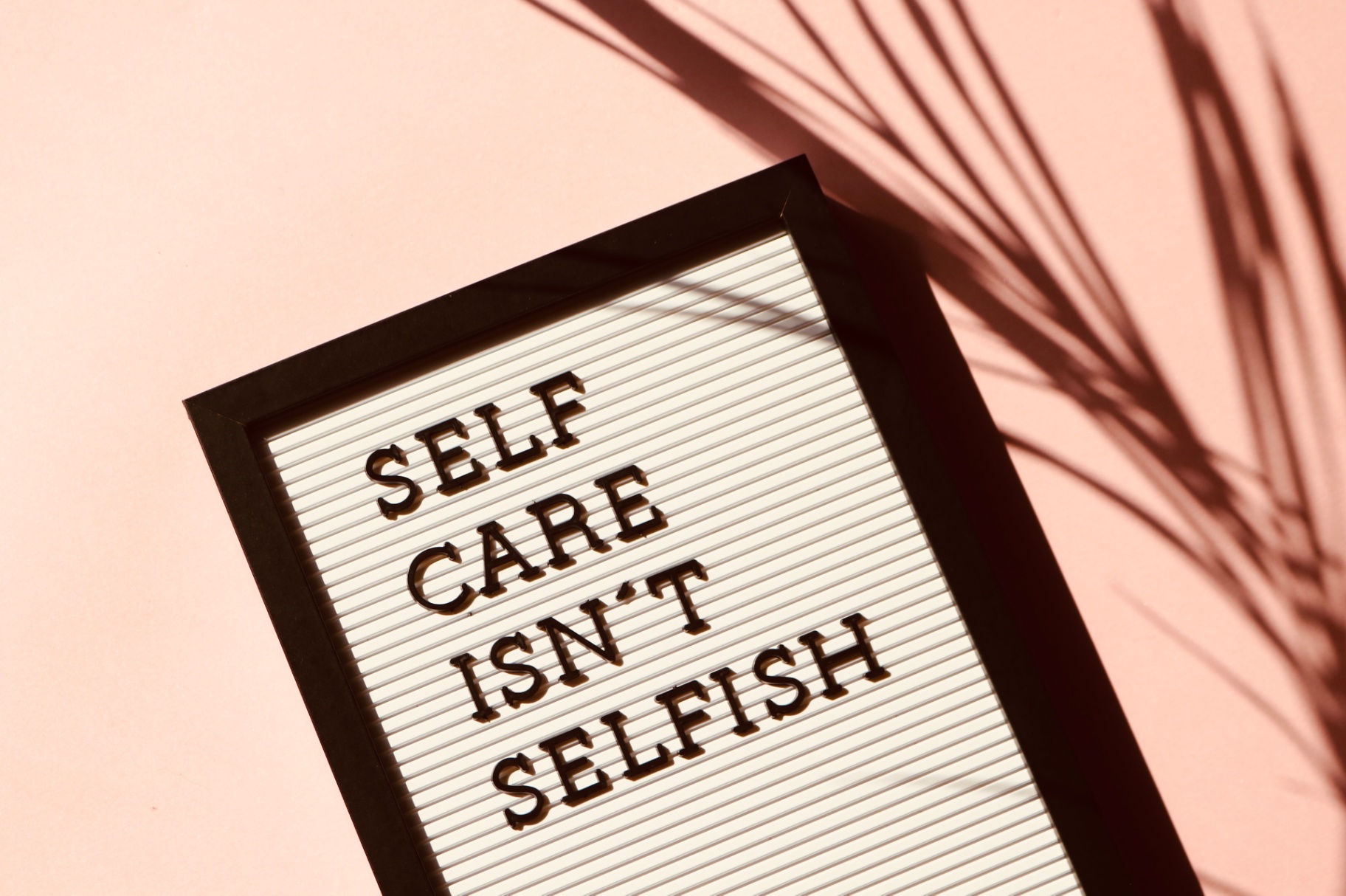Create a Foundation of Self-Care

The following is an excerpt from Unconditional: Learning to Love Your Authentic Self by Annalisa Smithson, LPC (available on Amazon now!)
So before I ask, “How do you take care of yourself?” perhaps I should ask, “Do you—actually—take care of yourself?” If your answer is, “No, I do not practice self-care”, then the most important lesson from this chapter is simply this: Give yourself permission to invest a few minutes each day in doing things that fulfill you. Many of us do not. American culture prizes “pulling yourself up by the bootstraps” and working independently to solve problems. We’re not usually taught to ask for help. We’re certainly not taught to prioritize our essential needs amongst the flurry of working weekends and abandoned vacation days. Self-care is seen as weak. We are taught that to be the alpha wolf we must sacrifice ourselves to the pack but, really, we need to care for ourselves to be able to care for the pack.
But here’s a little secret. Good self-care actually makes you stronger. It makes you a more productive, happy, engaged worker. It makes you a more present and pleasant member of the family. It makes you you again.
But how do you feel when you try to take care of yourself? If words like unworthy, hesitant, or self-conscious come to mind, keep reading. It’s very common for people to feel guilty about spending money and time on themselves. For many of us, it’s like pulling teeth trying to convince ourselves that we deserve a simple treat. (“Don’t waste the money, the calories,” etc.). We have to talk ourselves into vacation days with phrases like, “Everyone deserves a day off every once in a while,” or, “I’ll come in early for a few days next week.” Parents often believe that caring for others is the priority and self-care has to come last. If any of these behaviors sounds familiar, you haven’t really nailed basic self-care yet.
Putting Yourself on Your To-Do List
Self-care isn’t something you earn, like a treat for sitting or rolling over. It’s something we all need to thrive. So, answer this: do you want to thrive? Do you want to model healthy, happy living for your kiddos and doggos? If so, Give Yourself Permission to Do Self-Care.
Why has “self-care” become such a buzzword these days? Seriously, it started trending on Google shortly after the 2016 presidential election, but according to the Merriam-Webster dictionary, its first recorded use was in 1841. We’ve been overworked and underpaid for a long time! Now more than ever, people are recognizing the need for self-care and searching for ways to practice it. You can go online and find thousands of ideas for self-care. Everything from bee-keeping to bungee-jumping can be a self-care activity.
Despite the abundance of ideas and the desire to engage, self-care often feels just out of reach of our self-made leash. We want to relax, destress, and recharge, but we still feel tethered to our problems and self-doubt. You may be short on time and money, but I want to challenge you to change your thoughts on self-care. Make it a priority in your life. Budget the money (if you plan on spending any—you don’t have to) and give up a stressful activity in place of a self-care activity, thereby making the time. But more importantly than that, take your inspiration from the folks around you. Who in your life maintains a healthy balance of caring for others and caring for themselves? Let them be your guide in this next endeavor. Write the name of one or two “masters of self-care” in your life, then go talk to them. What do they do for self-care? How did they get to this point? What is their advice to you? With their help, and your permission, we’re going to make you the next inspiration of self-care.
Speaking of which, Benji is a true master of great self-care. I love talking to my clients about the sweet, simple ways he models self-care for us. During therapy sessions and workshops, I often encourage people to notice the straightforward innocence of Benji’s self-care and point out his activities. When he’s hungry, he eats (and he doesn’t count the calories). When he’s stiff, he stretches (without criticizing his athletic abilities). When he’s bored, he plays (and never feels self-conscious). He has a perfectly calibrated self-care barometer inside his puppy brain. Humans are similar to dogs in that we require fresh air, exercise, water, and sunshine every day in order to thrive, and we’re most creative and relaxed after letting ourselves play. So, when Benji asks to go for a walk, I often invite my clients to walk with us, hand in paw. An outdoor therapy session may seem unconventional, but Benji’s excellent modeling of self-care in the here-and-now is too inspiring to ignore.
Doggo’s Self-Care Basics
Here are some foundational self-care ideas, inspired by Benji and other well-balanced individuals:
- Sleep (at night) until your body says “I’m good”
- Eat something nourishing
- Have safe sex (solo time counts too)
- Breathe in fresh air, preferably in a garden or grove of trees
- Connect with your higher power
- Create a safe, authentic connection with another human
Ever hear of Maslow’s Hierarchy of Needs? It’s okay if you haven’t but you “need” to hear about it! In 1943, psychologist Abraham Maslow published a paper called “A Theory of Human Motivation.” It states that we must meet our basic physiological and safety needs before we have the capacity and opportunity to focus on psychological, interpersonal, and creative needs. Like most aspects of being human, it’s not an all-or-nothing situation. We can still create meaningful intimate relationships while struggling to find food and housing, but unmet basic needs will interfere in most other aspects of our lives. As we move up the hierarchy, fulfilling our needs for food, water, warmth, safety, and love, we come closer to “self-actualization.” This is when we have leisure to engage in creative activities and realize our full potential. Most of the folks reading this book have already met their own basic needs—in the most obvious sense. You probably have a home, a cupboard full of groceries, and access to clean water. But you mustn’t neglect your actual health and well-being. Don’t force yourself to run ragged caring for others before you attend to your own needs! You may have access to healthy food, cool water, and caring friends, but if you forget to partake in any of it, it doesn’t count for much. It’s like a dog that takes their prized bones, buries them, and forgets all about them! Consider what I’m saying. You are safe, secure, and have what you need to thrive. Give yourself permission to enjoy it. Fully attend to your basic human needs. Rest, eat, breathe, connect.
Today’s Act of Unconditional Self-Love
The whole premise of this book suggests that you can and will love yourself like your dog loves you. It’s time to let Doggo (or another loving pet) be your guide. Designate a decent chunk of time to slow down and find your zen. Let your pet take the lead. Follow them around the house and try emulating their kind of self-care. You might find yourself drinking a cool glass of water, wandering through the yard smelling flowers, or napping in a patch of sunlight. Embrace it!
Today’s Journaling Prompts
What are my basic needs? What needs have I been putting ahead of others and why?
What was it like to find my zen with my pet? What did I learn about myself?

